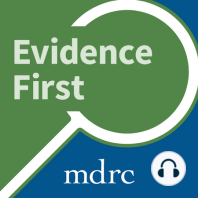15 min listen
Testing a Successful Employment Model in a New Context
FromEvidence First
ratings:
Length:
12 minutes
Released:
Apr 20, 2020
Format:
Podcast episode
Description
Individual Placement and Support (IPS) is a model for helping people who have serious mental illness find employment. There is a good deal of evidence showing the model’s success, but less is known about the model’s effectiveness with those who have other types of disabilities and health conditions, such as physical disabilities or less severe types of mental illness. Between 2016 and 2018, MDRC led an evaluation of Breaking Barriers, a program in San Diego County that implemented the IPS model. Breaking Barriers served individuals who had a wide range of disabilities, not only serious mental illness. An initial analysis of data found that Breaking Barriers’ IPS services did not have an effect on employment outcomes. With funding from the Office of Planning, Research, and Evaluation in the U.S. Department of Health and Human Services, MDRC will be conducting additional analyses of Breaking Barriers, as part of the Building Evidence on Employment Strategies for Low-Income Families (BEES) project. In this episode, Leigh Parise talks to Robert Drake, one of the developers of the IPS model and the vice president of the IPS Employment Center at the Rockville Institute, and Lily Freedman, a member of the MDRC evaluation team, about the IPS model, Breaking Barriers implementation, and the further analysis to be done under BEES.
Released:
Apr 20, 2020
Format:
Podcast episode
Titles in the series (57)
Transitioning to Adulthood: Supporting the Transition to Adulthood by Evidence First
